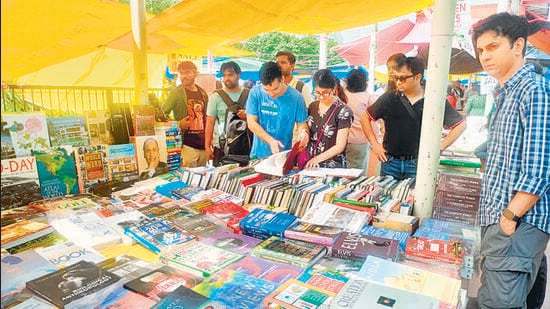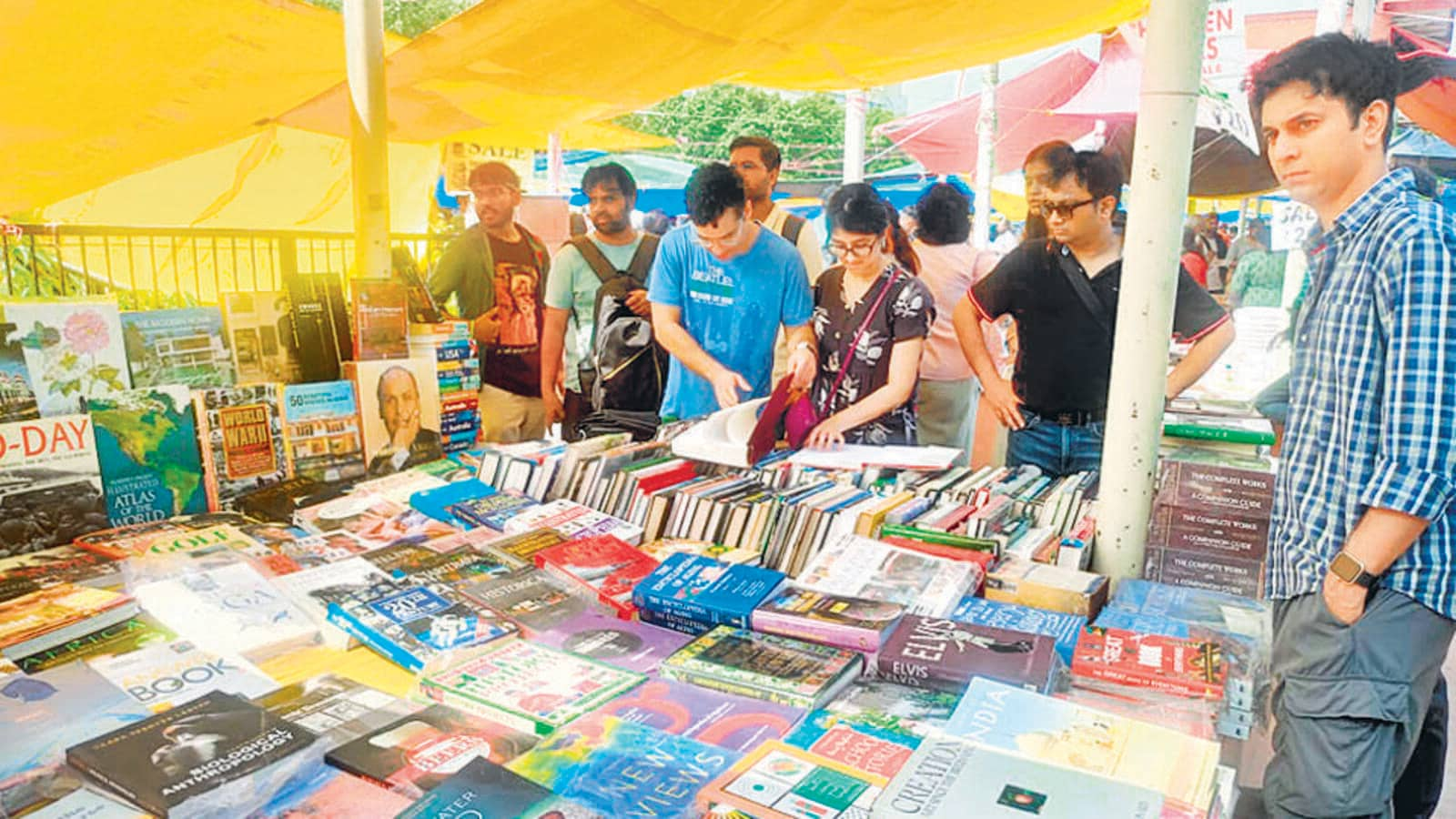Pulling out a copy of “The History of Shah Alam” at the iconic Sunday book market in Daryaganj’s Mahila Haat, author and city chronicler Sohail Hashmi recalled the early days of the market as he, along with author Kanupriya Dhingra, led a heritage walk across lanes of Netaji Subhash Marg and Asaf Ali Marg.
 There are around 230 booksellers in the market currently. (HT Photo)
There are around 230 booksellers in the market currently. (HT Photo)
“I bought this book in my college days. It is a 1960 reprint of the book from 1798 and I paid only 25 paise for it. This book market was a collection of the absolute rare gems, all at prices students could afford,” Hashmi said, as around 50 interested individuals followed the walk.
The walk, part of the Delhi Art Gallery’s “The City as a Museum Festival,” was a pilgrimage for bibliophiles. The event, which takes place from September 6 to 21, was guided by Hashmi and Kanupriya Dhingra, who researches the very soul of such places.
Dhingra researches on the history of book markets and print cultures, and currently works to know more on Delhi libraries. “The real essence of the market was in the fact that people who had time on a Sunday would stroll down these streets and lazily glance through the mountains of books. They would inevitably end up buying some or the other copy,” Dhingra said, pointing at the essence of nostalgia the market holds.
Started in 1961, the book market moved to the Mahila Haat in Asaf Ali Marg, Daryaganj in 2019, in order to clear congestion. But in the hearts of its patrons, its spirit remains on those old pavements where one could stumble upon more than just books: a scribbled letter forgotten as a bookmark, the large-paper editions, even the CDs that once felt like the future.
The Sunday book bazaar has long been a beloved haven for book lovers where you can chance upon and discover everything from rare first editions, old imported books, novels with the aroma of yellow papers and lost letters to staple books, exam keys, and stationery items for students preparing for competitive exams .
Kamar Syed, president of the Daryaganj Sunday book bazaar welfare association, said, “The market started with about 50-60 booksellers and now we have about 230 of them. The market started as a side quest of the kabadi (waste) market and eventually it became a symbol of reliability for students and a cultural hub.”
Syed said while the market now sees an even bigger crowd, the essence feels somewhat lost.
“Ye gyan ka bazaar hai (This is the market of knowledge). This market has its own contribution to education over generations,” Syed said.

